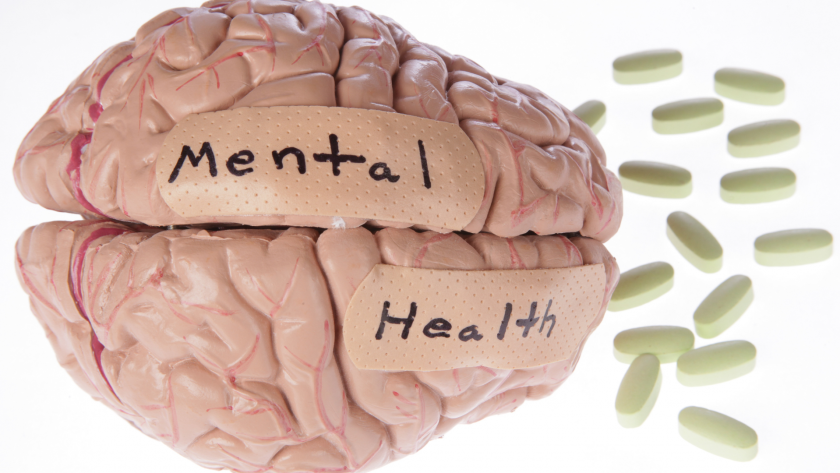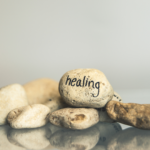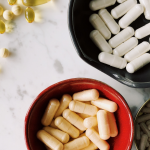When people hear the word “pills,” they immediately think of controlled substances that require a prescription. But can you walk into a drugstore and stock up on some generic Ambien or Prozac? The short answer is no. Mental health medications are not sold over the counter. However, there are a few mental health medications that can be purchased without a prescription, such as benzodiazepines. While benzodiazepines like Ativan can be extremely helpful for severe anxiety or insomnia, they shouldn’t be used as a long-term solution. But, yes, some pills can be bought over the counter.
It is no surprise that many over-the-counter (OTC) products often tout mental health benefits along with general health improvements. These medications-called “nonprescription” by their manufacturers-are used to treat anxiety, depression, sleep issues, ADHD, and other conditions. In addition to over-the-counter medications, many people often also use CBD edibles and concentrate, such as those available on websites like https://www.canadacannabisdispensary.ca/product-category/concentrates/, to treat anxiety and other related problems.
When it comes to OTC drugs, not all are created equal, so it’s important to be aware of the potential dangers and side effects. For example, while some over-the-counter medications can offer relief for common ailments, others might pose risks such as addiction or severe withdrawal symptoms, especially if used long-term or inappropriately. It’s crucial to use OTC medications as directed and consult with a healthcare professional if you have concerns about their safety or if you experience any adverse effects. If you’re unsure where to start or need help with managing medication use, you might consider searching the web for resources such as “best detox programs in sedona, arizona” or your local area. This can help you find reputable programs and professionals who can provide guidance and support tailored to your needs. Let’s now quickly review a few of these OTC medications and the conditions under which they should be used.
SOME COMMON OTC MEDICATIONS
1. Omega-3 Fatty Acids – Omega-3 fatty acids are a type of polyunsaturated fat. They are found in some foods and can also be produced in the body. In fact, your body needs omega-3 fats for healthy brain development, as well as to keep your heart healthy and functioning properly.
2. 5-HTP – Neurotransmitters are chemical messengers that travel across nerve cells and brain synapses in the brain. Serotonin is a neurotransmitter that plays an important role in the body related to learning, memory, happiness, and more. A lack of this neurotransmitter has been linked to depression, stress, and anxiety. The 5-HTP vitamin supplement is found in plants and animals, and serotonin is synthesized from 5-HTP. The supplement is inexpensive and can be purchased over the counter.
3. SAMe – SAMe (S-Adenosylmethionine) is a well-known sublingual tablet that helps with depression, anxiety, and other conditions. Doctors often prescribe SAMe as a treatment for depression, but S-Adenosylmethionine works in other ways too. It is also a B vitamin, and studies show that taking SAMe as a supplement can:
- Boost the immune system
- Reduce pain and inflammation
- Reduce blood flow to muscles
- Improve feelings of well-being
4. Rho Diola Rosea – Buy Rho Diola Rosea pills over the counter as a natural remedy to help cope with anxiety, depression, and bipolar disorder. Rho Diola Rosea (also known as roseroot) is an herb that has been used for centuries for its ability to help reduce stress and increase energy levels. Even though Rho Diola Rosea is an herbal remedy, some evidence suggests that it may not produce harmful side effects.
5. Vitamins and Minerals – A wide variety of vitamins and minerals have been investigated for their potential role in depression. Some of the nutritional treatments which have been researched include vitamin B12, chromium, and inositol. It is not possible within the scope of this article to give full details about all the nutritional factors involved in depression. Nevertheless, the consumption of necessary vitamins and minerals can lead to reduced symptoms of many mental health conditions.
6. St. John’s Wort – St. John’s wort (Hypericum perforate) is a flowering herb commonly used in herbal medicine to treat mild depression. The herb is popular with patients because it relieves mild to moderate depressive episodes.
7. Nabiximols – which is sold as Spravato, Aripiprant, and Zembrin, is an over-the-counter medication that promises to treat anxiety, depression, and ADHD.
Every single day, there are countless people struggling with mental health issues. The most common mental health issue is depression, affecting 16.9% of the population. Other common mental health issues include anxiety disorders, such as panic disorder and obsessive-compulsive disorder. These mental health issues can lead to other serious health problems, like cardiovascular disease or suicide, without proper treatment.
While prescription and over-the-counter medications can be lifesavers to those suffering from mental health disorders, it is important to be careful when shopping for them. Some pills sold over-the-counter are dangerous and can have serious side effects. However, there are effective products like cbd tinctures which are generally sold through the websites of trusted sellers. Moreover, these products can help alleviate anxiety and stress, which could further improve mental health.
Medications for mental health have been a long time coming. Over the years, there have been countless studies performed on mental health medications and their effects. These medications have been validated by research. For instance, there might be numerous pieces of research on cannabis being a viable medication for mental health disorders. A lot of doctors even tend to prescribe it to their patients who can then Buy Cannabis Online to treat their condition. All said and done, the stigma surrounding such diagnoses and medications has been and still is rife. The medical community and high-standing psychiatrists have primarily put this stigma on. This stigma is a shame in the case of mental health, as it hinders many people from seeking the required medical attention and from receiving the medications they need.
People often turn to over-the-counter medicines to treat their mental health. This is especially true for those who can’t afford prescription medication or whose insurance doesn’t cover it. But before you pop a pill to ease your anxiety or depression, you should know that taking on a new medication without your doctor’s approval could be dangerous.
Some people may resort to using illicit drugs such as methamphetamine or opioids. Others resort to self-harm. Those on opioid painkillers often misuse them. Due to the harmful and unknown nature of many such medications, it is important not to use them without prior and proper knowledge. Despite the availability of OTC pills, it is important to know their function and appropriate dosages before using them. Consultation with a qualified mental health professional comes first and foremost.




